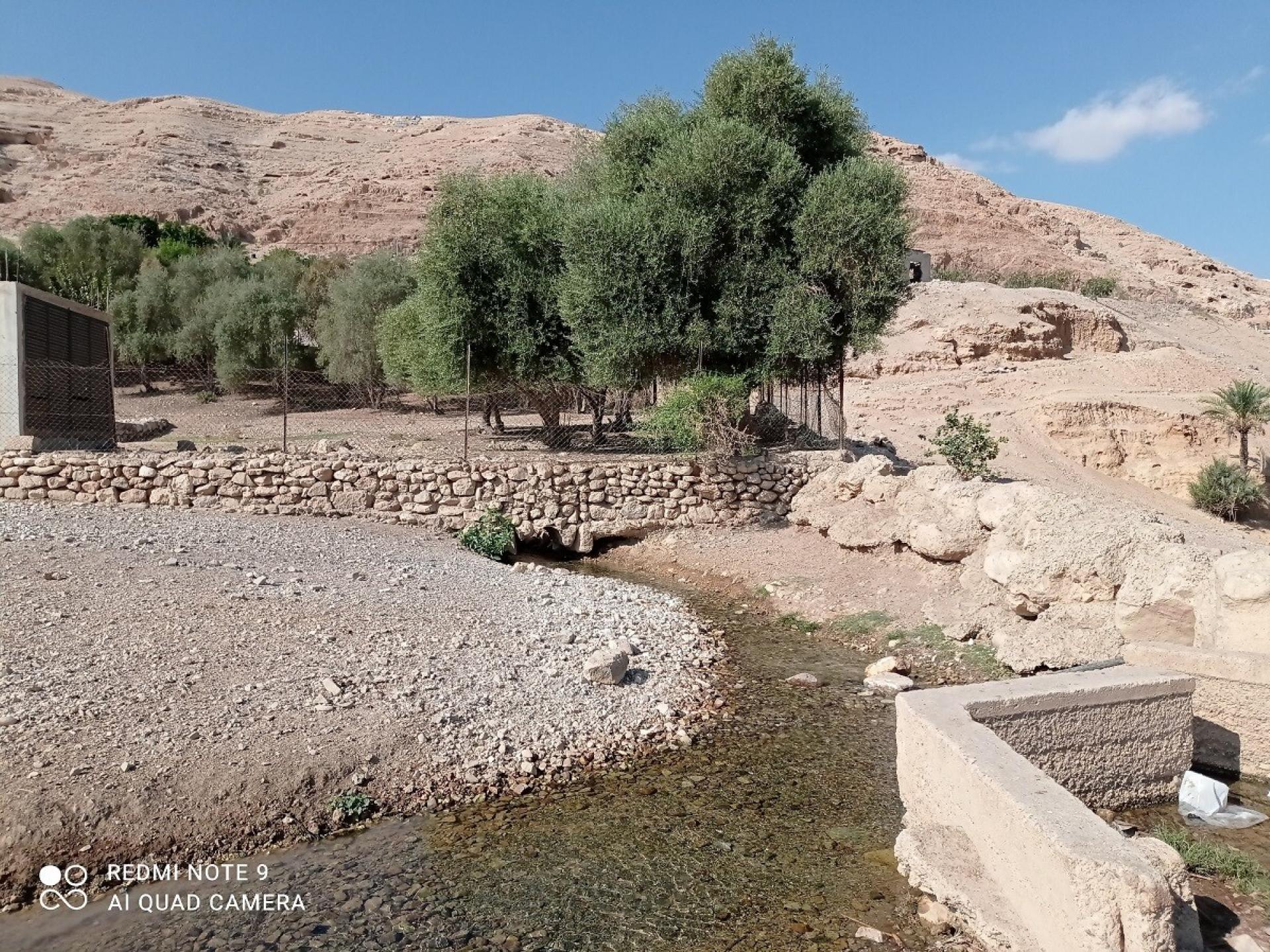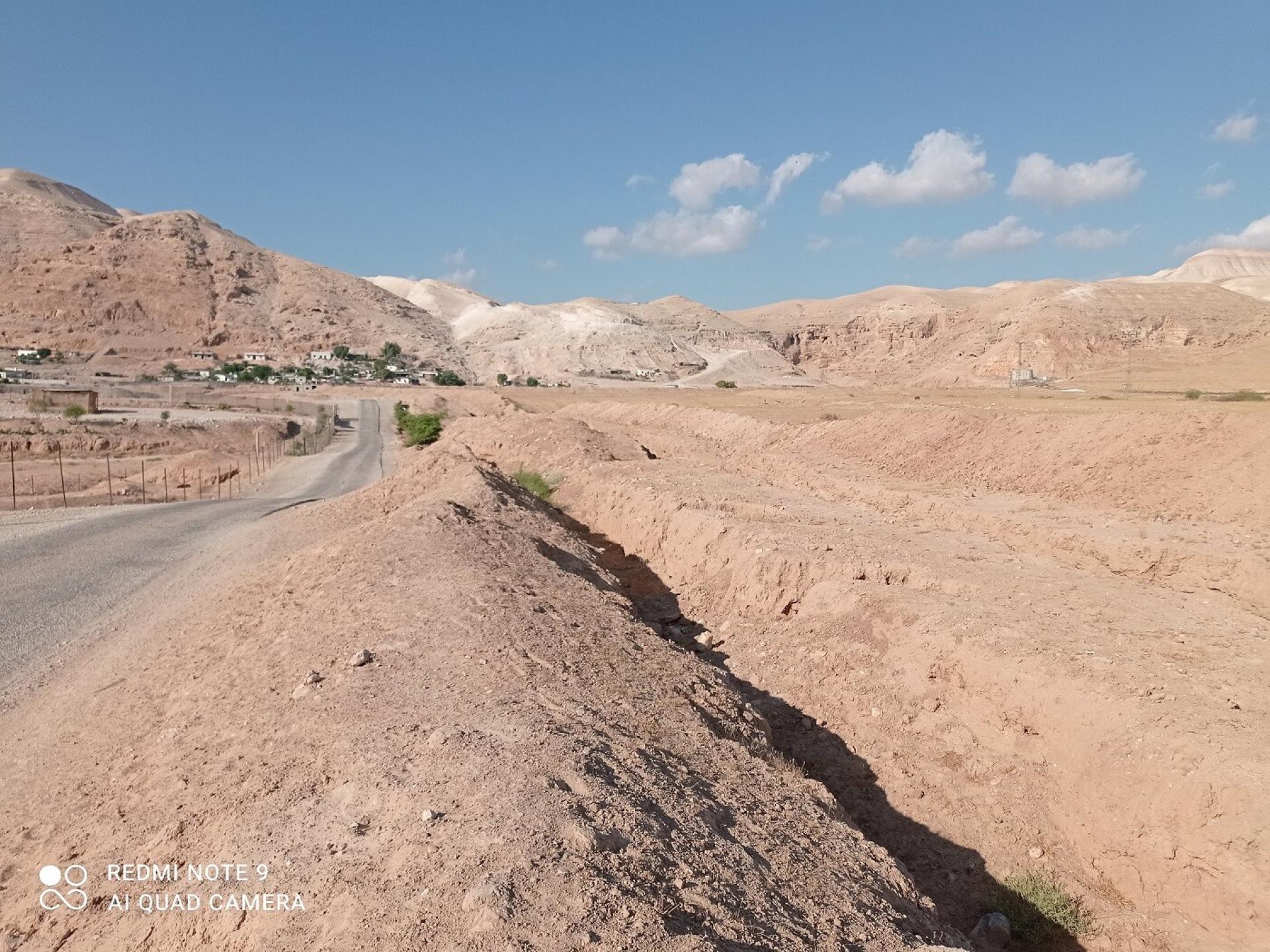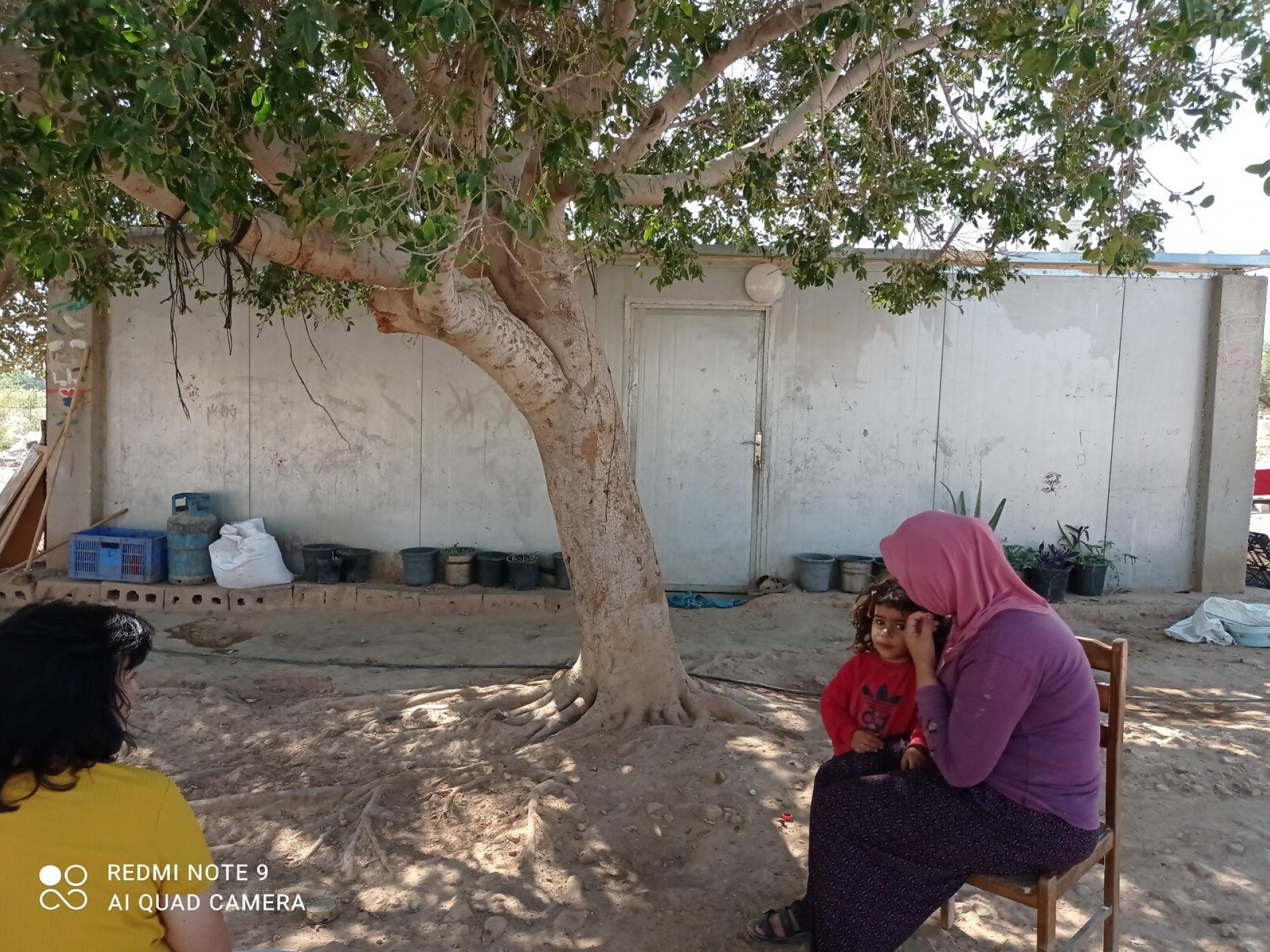Accompanying shepherds in the Jordan Valley: Uja and Fasail
We met Tziva in her yard at 5 a.m. and proceeded on our way, Nava and I. Tzvia did not join us but lent us their pick-up truck.
Accompanying Palestinian shepherds in the Auja area
Abu A. from En A-Diyuk takes his flock out to pasture every morning at dawn. Until the Second Intifada in 2002 he owned a taxi cab and worked with his son A. around Auja. He was forced to sell the cab after all access roads from his village to the main road were blocked by ditches dug by the Israeli army. Since then, like his father before him, he shepherds the family’s flock. His father was born in En Gedi, but in 1948 the family had to find an alternative place outside the State of Israel. This is how they came to En A-Diyuk, where his son was born.
Until the early 2000s, access to their fertile grazing grounds was open and they could graze there without fear. Problems began with the erection of the settler-colonist outpost of Me’vo’ot Yericho, right next to their village, and the ranch with the poetic name “Einot Kedem” [Eastern Springs] on their grazing grounds.
The outpost was founded in 1999. In the early 2000s more families came, and in 2004 the ranch was founded, Omer Atidiya’s ranch. Since then, vast grazing areas have been appropriated by the settler-colonists, and access to pasture is blocked increasingly by the settler-colonists and the Israeli army. In recent years, harassment of the shepherds and their flocks have been increasing both on the part of the settler-colonists and the army. The shepherds are afraid to come near the ranch and even to areas that are not tended. Abu A. documented a picture of a drone above his flock, that flew very low and caused much havoc. One of the pregnant sheep was badly hurt by a fall and died with the fetus inside it. There’s no knowing whether that drone belongs to the army or is the private property of the settler-colonist, in which case its operation in the West Bank is illegal.
We joined Abu A. and his son as they grazed some hundreds of meters from the road, in an arid stony area. When we got there, they began to approach the road and A. crossed it with his flock towards the ranch, exposing himself to the settler-colonist’s violent harassment. Abu A. took the flock up to a hill near the road, and we stayed with him. From there we could note the ranch’s fruit groves, growing mango, dates and olives. Throughout the grazing time, A.’s alert eyes watched every movement of a mini-tractor around the ranch, fearing he might be injured as has already happened in the past. Luckily today grazing went unhampered. At 8:30 a.m. we began to make our way back to the village for breakfast.
We drove to the village to visit Umm R., a shepherdess who also takes care of her extended household. That day she was not out grazing but busy doing housework. We sat with her and two of her daughters, and a daughter-in-law. Babies and small children ran around the room. The sons work in settler-colonies near the Dead Sea.
We spoke about the problems of grazing. She said that about two years ago a deep ditch was dug with a dyke next to it, along the road on the Me’vo’ot Yericho side, where the grazing grounds are most fertile. Since then, these grounds are inaccessible and the Palestinian shepherds have been left only with the dry areas.
Umm R. served us breakfast and almonds she had peeled herself. The peels are used as feed for the flock. Some of the almonds are sold and more feed for the flock is bought with the proceeds.
After hosting us, she agreed to take time off and came out with us to see the springs – the village’s source of water. The water is pumped into a tanker on a truck belonging to the PA and they pay the Authority. Cost is about 7 shekels per cub.m. The water is available all days of the week. The springs area is green, with plenty of water, fresh vegetation and banana groves. There is a fenced-in park there, with olive trees and pools.
A visit at Fasail Wusta, with T.
We passed by T.’s, after hearing that the army had left a distancing order 3 days ago, on the caravan where they live, as well as on the tent nearby. The army intended to come on Thursday and demolish the caravan and tent. T. has 6 children. The youngest is 3-years-old. We got to know her when she was 2-months-old, on a cold rainy winter day, after their home was demolished. It was not the first time that the Civil Administration thugs came before dawn, in pouring rain, and demolished the house, without any consideration for the family and the children. T. herself is a sick woman, diabetic with other health issues. We found her seated under the large ficus tree with her small daughter. We could not ignore the anxiety in the eyes of the little one.
thugs came before dawn, in pouring rain, and demolished the house, without any consideration for the family and the children. T. herself is a sick woman, diabetic with other health issues. We found her seated under the large ficus tree with her small daughter. We could not ignore the anxiety in the eyes of the little one.
The Fasail Springs
It was noontime. The flocks were resting under the jujube trees along the stream. Further on, where the new drill tower stood, which we first saw a year ago, there is at present a water pump and workers are there. According to a sign at the site, it is called Fatzael 3. We continued driving to the place with generous water flowing, large jujube trees and picnic tables in the shade of the trees. We met two couples from Aqraba having a picnic. The men sat by the table while the women went down to the stream to clean food for lunch. The men said that since Covid-10 hit, the economic situation has gone down the drain. One of them said he used to work in renovations inside Israel. Now there is no work. He wondered if we could help…
As we talked, we witnessed a delightful scene. Three donkeys and a young one were running around having a good time. They seemed to enjoy being free, with flowing water, shade and sources of food. An unusual sight considering that the donkeys belonging to Palestinians are always alone in spite of being social creatures, and are always tied up for hours, exposed to the sun or rain, when they are not out to pasture with their shepherd owners.




